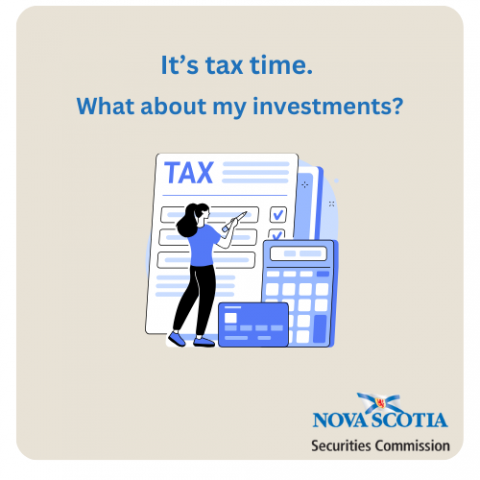Submitted by nsscadmin on

The calendar has flipped over to 2024 which means for most Canadians it’s tax time. If you’re an investor that may mean you need to declare some of your investment gains on your tax return. Today we’ll give a brief overview of a couple of tax considerations that may come up on your tax return if you’re an investor.
Before we begin, if you invest solely in an RRSP or TFSA you may not have to declare any of your investment income on your tax return. Be sure to check this with your adviser or a tax professional to ensure this in the case. If you’re investing in a non-registered account you may need to address two tax considerations we’re looking at today, namely capital gains tax and the dividend tax credit.
Capital Gains Tax
For today's example, we are using a simple sale of a security. Tax laws around capital gains are complex and you should consult with your tax professional regarding other situations that may trigger capital gains taxes. You have sold an investment for $1,000 which you purchased for $500. As result you have a recognized capital gain of $500.
In Canada, 50 percent of your capital gains are taxable, also known as the inclusion rate. Many people are confused when they hear this and believe they will pay 50 percent of what they have gained as tax. That is not how capital gains tax works. From our example above, we had a $500 capital gain, only 50 percent of that gain, or $250, would be included as income for the year. How much tax you end up paying on that capital gain depends on which tax bracket you fall under.
One other common area of confusion around capital gains and taxes is that only realized capital gains are taxed. To explain what this means let’s look at our example from above again. The securities I purchased for $500 have increased in value and are now worth $1,000. The capital gain of $500 is not realized until I sell the securities. A capital gain that has not yet been realized does not need to be declared on your taxes.
Dividend Tax Credit
Dividends that are earned from securities are taxed differently than capital gains. Typically, dividends are taxed at your marginal tax rate which is typically more than the capital gains tax rate.
In Canada, dividends that are received from taxable Canadian corporations may be eligible for the dividend tax credit. Corporations designate their dividends as eligible or other than eligible. The tax rate for the two differ. This designation can be found on your tax slips.
When you prepare your annual tax return, you declare the grossed-up amount of your dividend income from the year as part of your overall annual income. To offset the higher amount you have declared, you can receive a tax break on your dividend income through the dividend tax credit. The tax credit is determined by federal and provincial rates, which are dependent on which province or territory you reside in.
If you are paying tax on capital gains, dividends or some other form of investment income, be sure to discuss them with your adviser and a tax expert to ensure you are paying the correct amount of tax and taking advantage of any tax credits or breaks that may be available to you.
